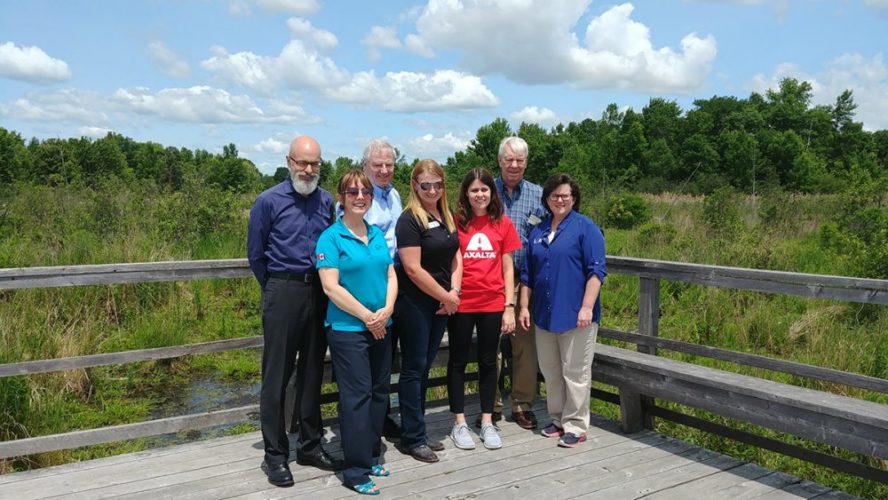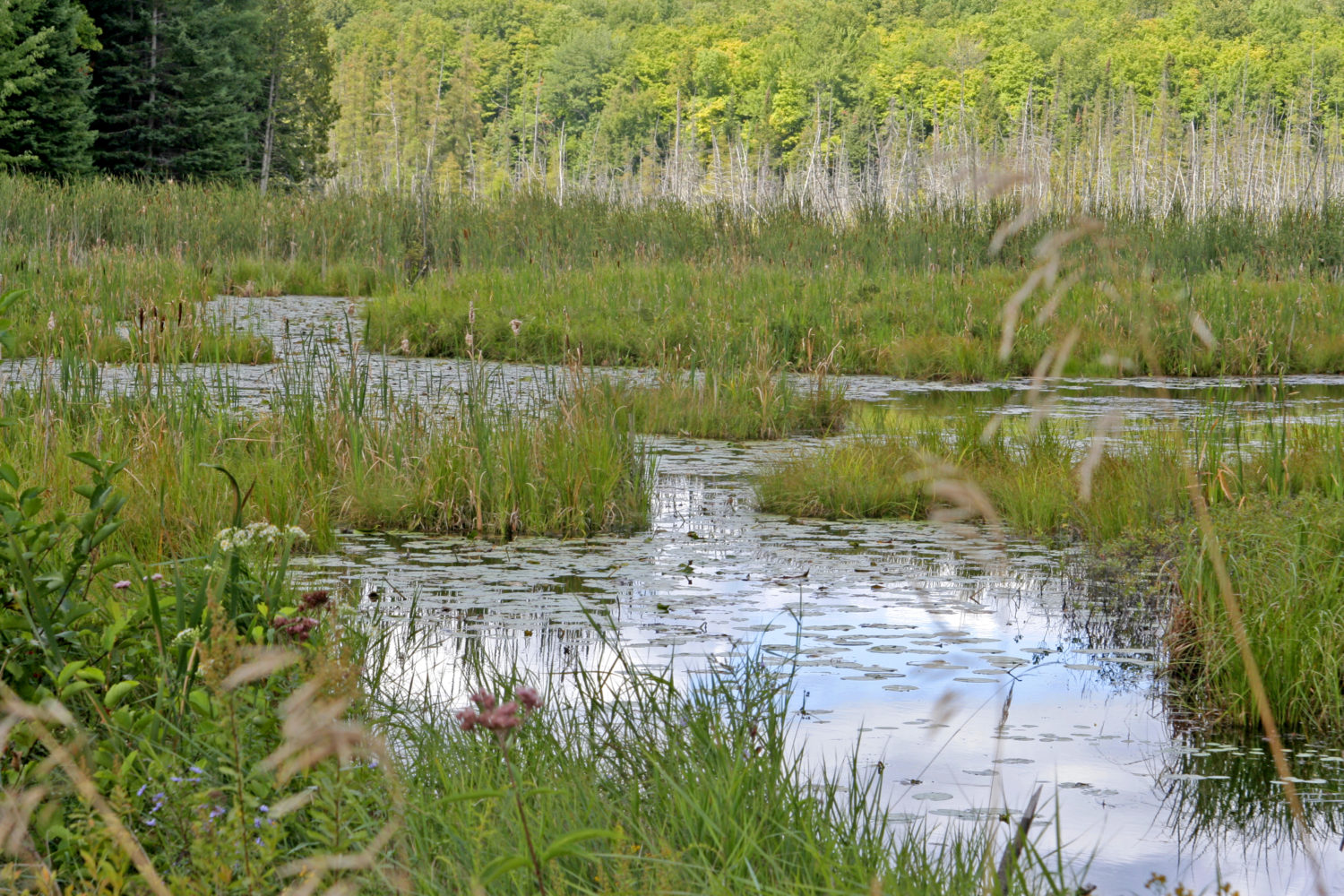Ducks Unlimited Canada (DUC) has completed a restoration project at Charlottenburgh Marsh, a large coastal wetland within the Cooper Marsh Conservation Area near Cornwall, Ontario. By protecting the natural habitat and removing invasive species, DUC is ensuring that this provincially significant wetland continues to support abundant wildlife, including 130 recorded bird species.
A short drive east of Cornwall, the Cooper Marsh Conservation Area is a popular destination for local school groups and visitors who enjoy hiking, bird watching, picnics, and other outdoor recreation. However, in recent years, structures that help manage water levels in Charlottenburgh Marsh had eroded. Phragmites, a towering invasive plant, had infiltrated the wetland and was choking out native plants that support wildlife.
After a year of work and strong support from local partners, DUC has restored this natural sanctuary along the busy St. Lawrence Seaway. People will be greeted by a vibrant and healthy wetland ecosystem as they return to the trails, boardwalks, and viewing towers.
“The work completed at Charlottenburgh Marsh showcases the important relationship between conservation and recreation,” said Karla Guyn, chief executive officer of DUC. “We strive to find ways of balancing the protection of our natural areas with public access and enjoyment. We’re fortunate to have many partners who share our commitment and support conservation projects that benefit wildlife and communities.”
This project was carried out by DUC in partnership with the landowner, Raisin Region Conservation Authority. The restoration is part of DUC’s ongoing care and maintenance of its many habitat assets in Ontario.
“The Raisin Region Conservation Authority has been a diligent caretaker of Charlottenburgh Marsh for almost 30 years,” said Richard Pilon, general manager for the Raisin Region Conservation Authority. “We’re pleased the restoration will ensure that visitors continue to enjoy a healthy coastal wetland ecosystem with abundant wildlife into the future.”

Signs of the project’s success are already showing. Following the restoration work, black terns were spotted nesting in the area. Black tern populations are declining in Ontario and terns had not been observed at the marsh near Cornwall for years.
“Outdoor education is a major focus for the Cooper Marsh Conservation Area,” said Robin Poole, on behalf of the Cooper Marsh Conservators, a local group near Cornwall that supports many activities at the conservation area. “It’s a pleasure to share the wonders of wetlands and wildlife in the marshes with a new generation, including exceptional sights like nesting Sandhill cranes and the black terns which returned in the summer as a result of changes in the marsh this year.”
















